inTouch for
Hospitals and Clinics
inTouch for
Thoughtful daily contact that eases transitions and supports wellbeing
In medical environments, moments of calm connection can support both recovery and emotional stability. Whether a patient is preparing for discharge, receiving long-term treatment, or waiting in transition, inTouch offers a friendly voice and a familiar rhythm that brings comfort.
Our non-clinical phone calls support wellbeing and ease communication without adding tasks to your care team.
How inTouch supports
Hospitals and Clinics
Offers a steady daily rhythm that supports emotional regulation
Helps patients feel more settled during recovery or treatment
Surfaces small changes in wellbeing that may need clinical follow-up
Supports safer, more personalised discharge planning
inTouch Products
Conversations
Proactive calls that offer companionship and meaningful conversation during quiet moments in the day.
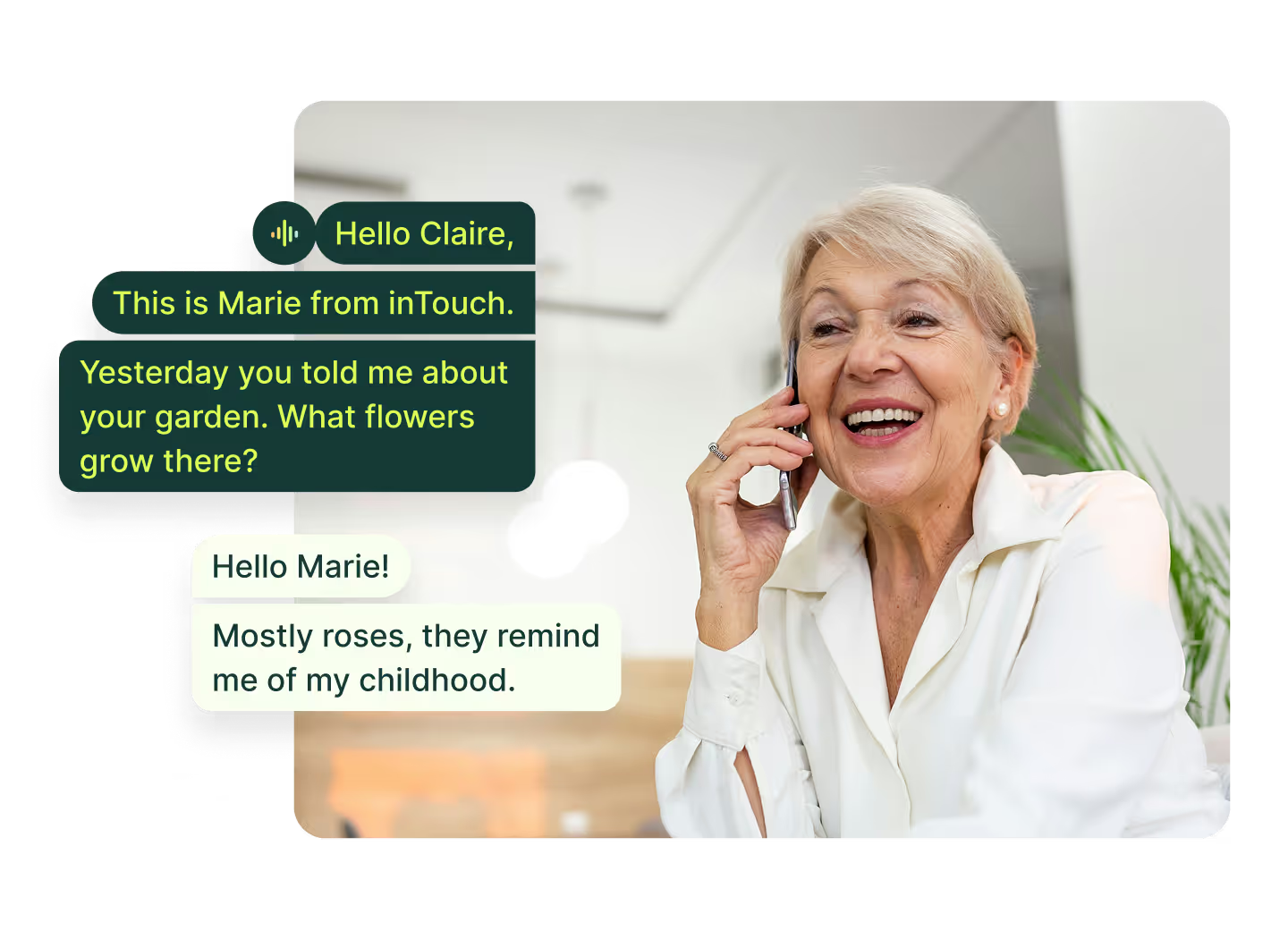
Reminders
Tailored, secure calls with gentle reminders for hydration, medication, and daily routines.
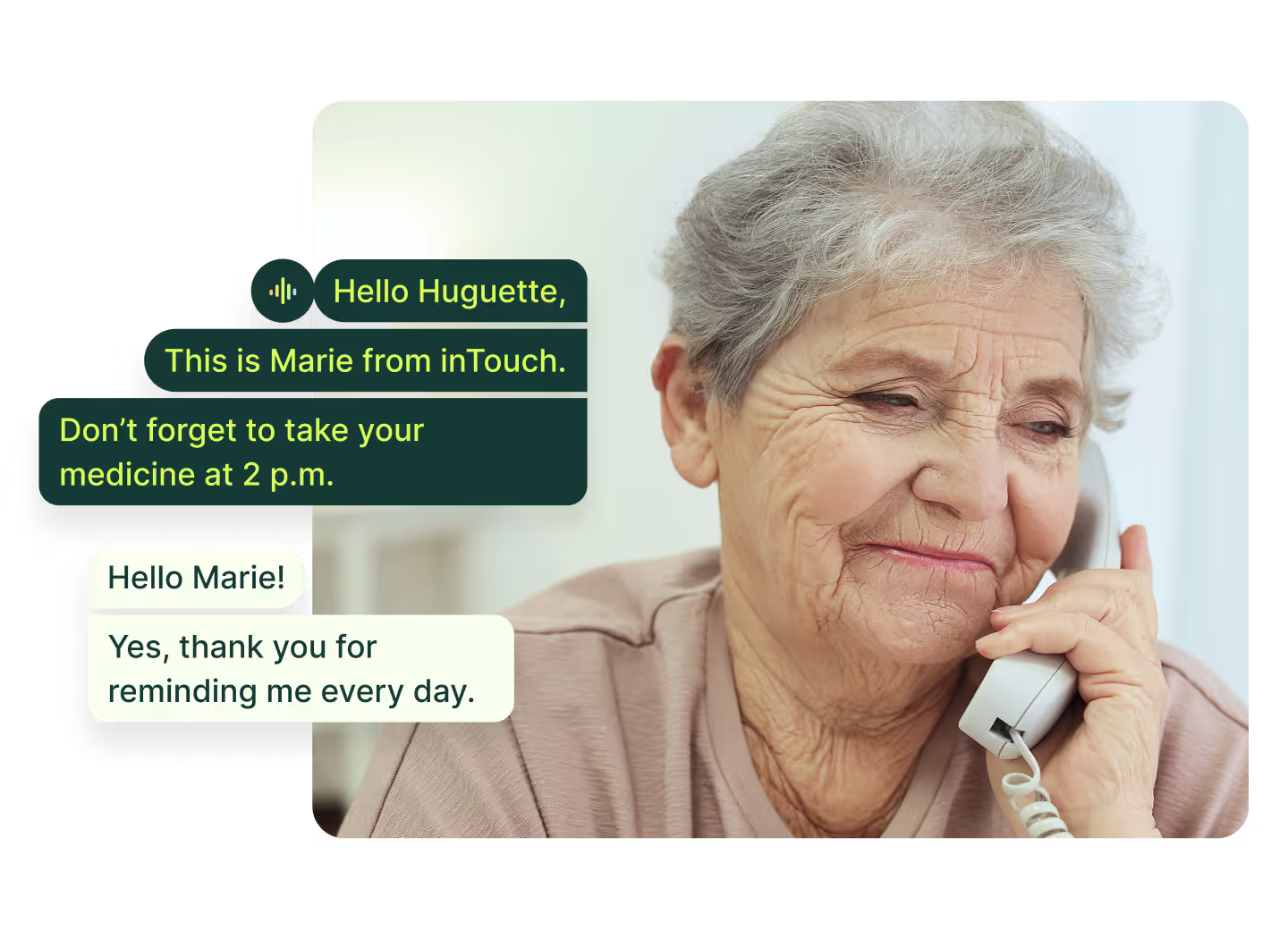
Alzheimer's Calls
Specialized calls providing a steady voice for calm, orientation, and gentle reassurance.
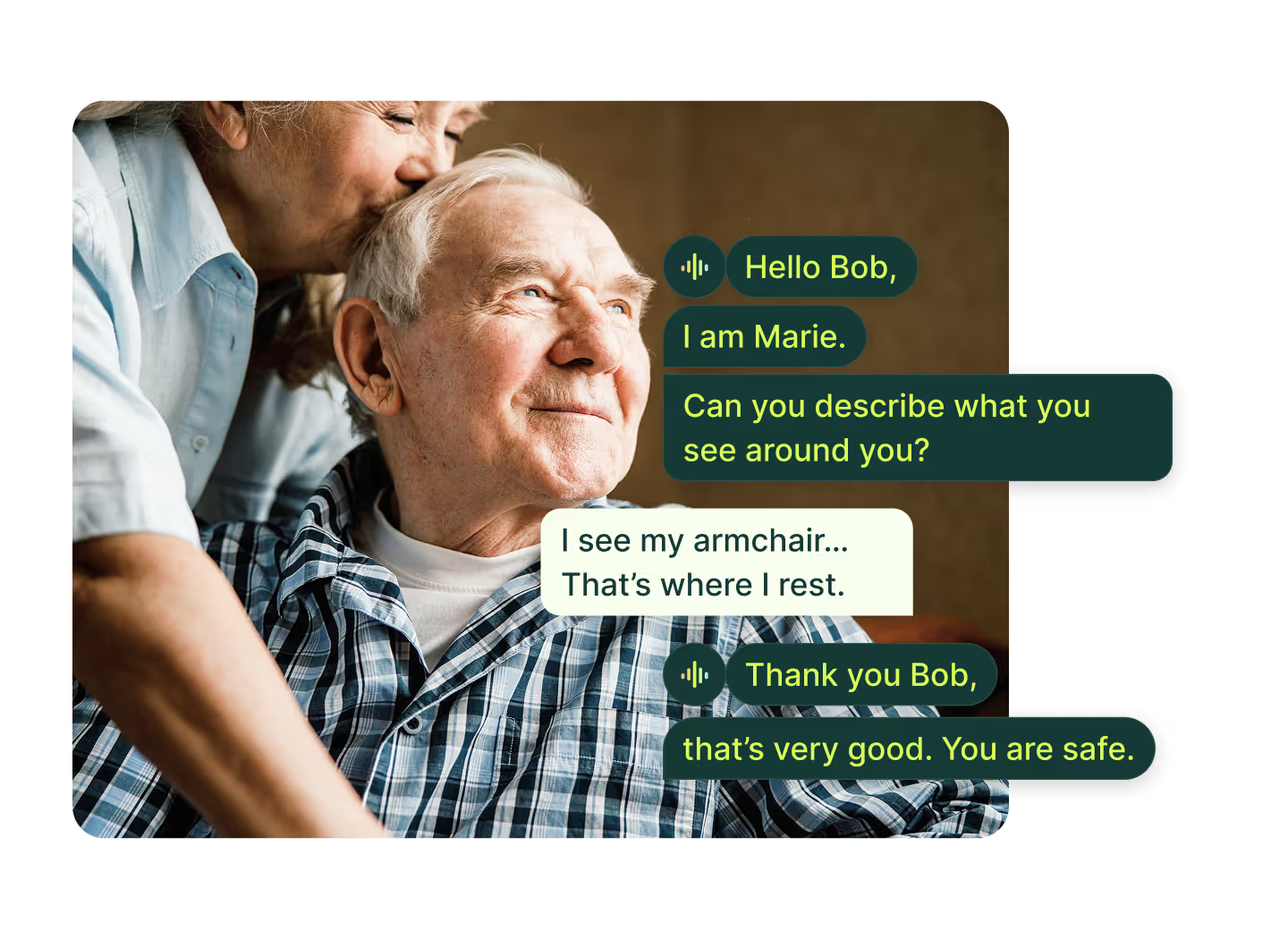
inTouch Products
Reminders
Tailored, secure calls with gentle reminders for hydration, medication, and daily routines.

Morning Check-Ins
Early calls to check on outpatient well-being and help care teams plan and prioritize their day.
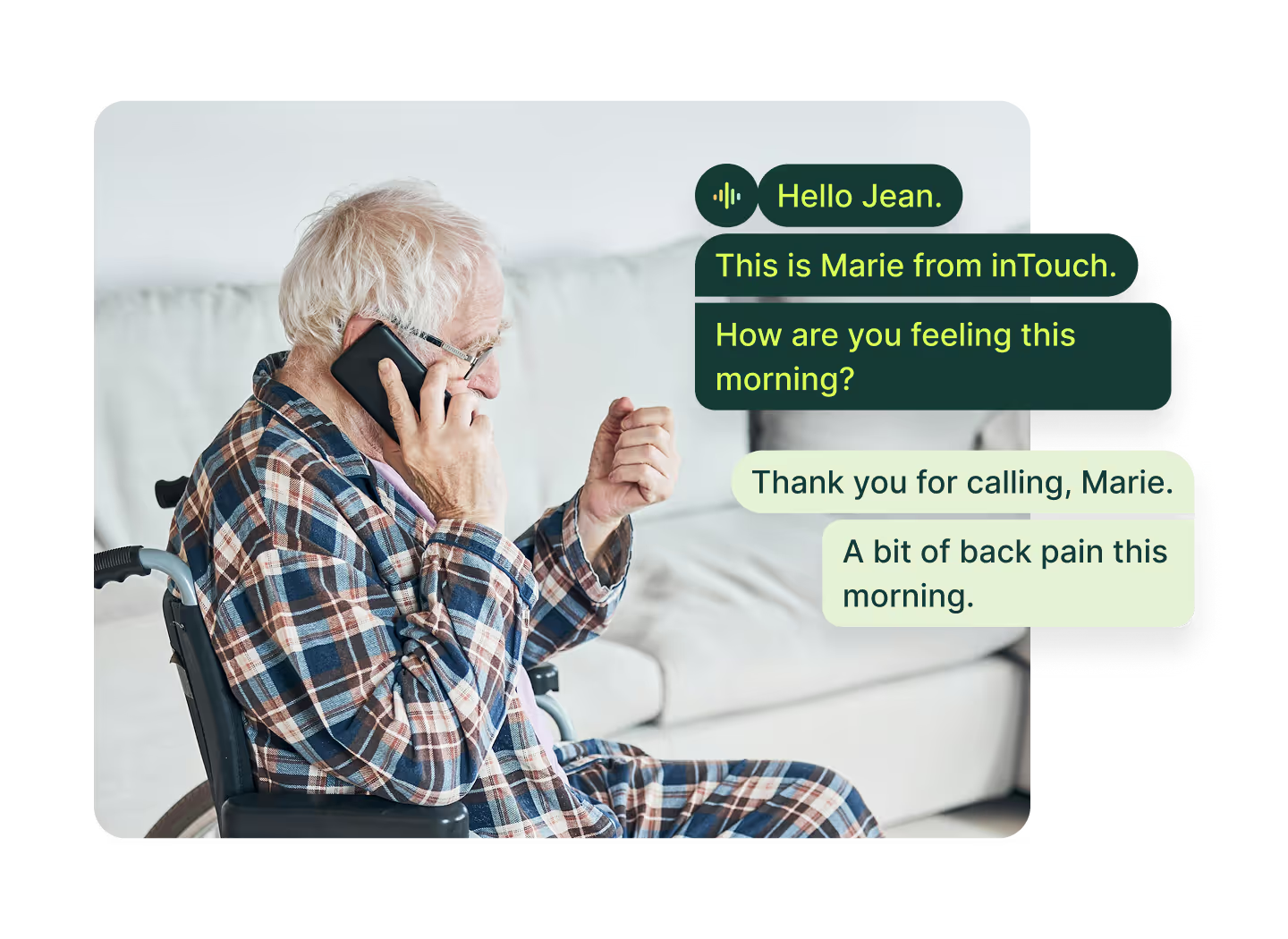
Conversations
Proactive calls that offer companionship and meaningful conversation during quiet moments in the day.

inTouch Products
Reminders
Tailored, secure calls with gentle reminders for hydration, medication, and daily routines.

Morning Check-Ins
Early calls to check on outpatient well-being and help care teams plan and prioritize their day.

Conversations
Proactive calls that offer companionship and meaningful conversation during quiet moments in the day.

Alzheimer's Calls
Specialized calls providing a steady voice for calm, orientation, and gentle reassurance.

inTouch Products
Reminders
Tailored, secure calls with gentle reminders for hydration, medication, and daily routines.

Morning Check-Ins
Early calls to check on outpatient well-being and help care teams plan and prioritize their day.

Conversations
Proactive calls that offer companionship and meaningful conversation during quiet moments in the day.

Recommended Call Types
Alzheimer's Calls
Specialized calls providing a steady voice for calm, orientation, and gentle reassurance.

Conversations
Proactive calls that offer companionship and meaningful conversation during quiet moments in the day.

Reminders
Tailored, secure calls with gentle reminders for hydration, medication, and daily routines.

Daily Insights
Report
Stay informed
Get notified when they answer a call, what was discussed, and how they felt.
Sense their mood
Quick emotional updates help you respond with warmth when it matters most.
Anticipate the day
Leave a note to be read aloud during their next call, with their reply waiting for you.
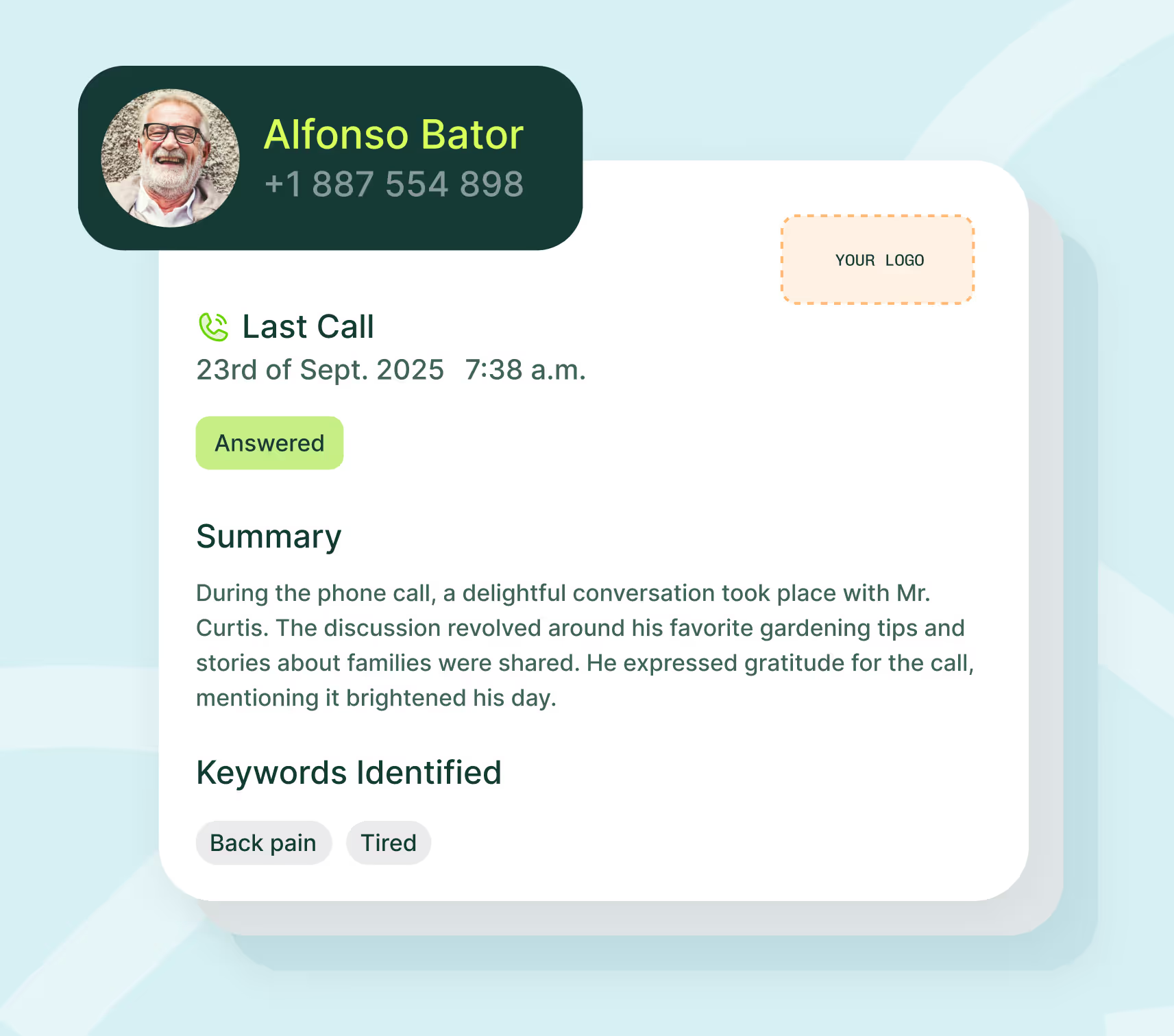

Get inTouch with us
We'll be happy to address your request

FAQs
Wondering how inTouch works? You’re not alone — below are the answers families often ask us.
Is the service secure and compliant?

Yes. inTouch is fully GDPR and HIPAA compliant. Calls are not recorded, and data is shared only with authorized care team members. The system meets hospital-level data security and privacy standards.
What happens if a patient does not answer the call?

Missed calls are noted in the report. While no alert is triggered, repeated missed calls may help identify disengagement, fatigue, or changes in routine, information that can be useful to care teams during check-ins.
Can inTouch continue after the patient leaves the hospital?

Yes. inTouch can be used as part of a post-discharge support plan to help patients continue receiving structured contact at home. This continuity can ease the emotional shift after leaving a clinical environment and reduce risk of isolation.
Does this add tasks to the medical team’s workflow?

Not at all. inTouch works independently of your clinical systems. There is no app to manage, no monitoring required, and no disruption to care routines. Updates are sent as short summaries for reference only.
Which services are most used in hospitals or clinics?

Morning Check-ins and Reminders are most common, helping patients stay oriented and connected to their routine. Conversation Calls may also be used for longer stays, or to prepare patients for transitions and support emotional wellbeing.
What types of patients benefit most from inTouch?

inTouch is especially helpful for patients who:
- Are recovering from surgery or illness
- Are awaiting discharge or navigating care transitions
- Are undergoing long-term treatment and need emotional steadiness
- May experience anxiety, isolation, or cognitive fog while hospitalized
Is inTouch a clinical service?

No. inTouch is a non-clinical support tool. It does not diagnose, treat, or monitor patients. Instead, it offers emotional reassurance, gentle structure, and early awareness of changes in mood or routine that may support clinical awareness
How does inTouch support patients in medical settings?

inTouch provides brief, calming phone calls that help patients feel more settled and emotionally supported. These calls bring a familiar rhythm into the day, helping ease anxiety, improve mood, and create moments of connection, especially during recovery or transitions.
Would My Mom or Dad really talk to an AI?

Many families wonder that at first — and we understand. But most older adults feel at ease within the first few seconds. That’s because every inTouch call is designed to feel like a natural conversation with someone their age: thoughtful, warm, and genuinely interested. No robotic voices. No pressure. Just a gentle voice that listens, asks kind questions, and gives them space to talk — or pause — at their own pace.





